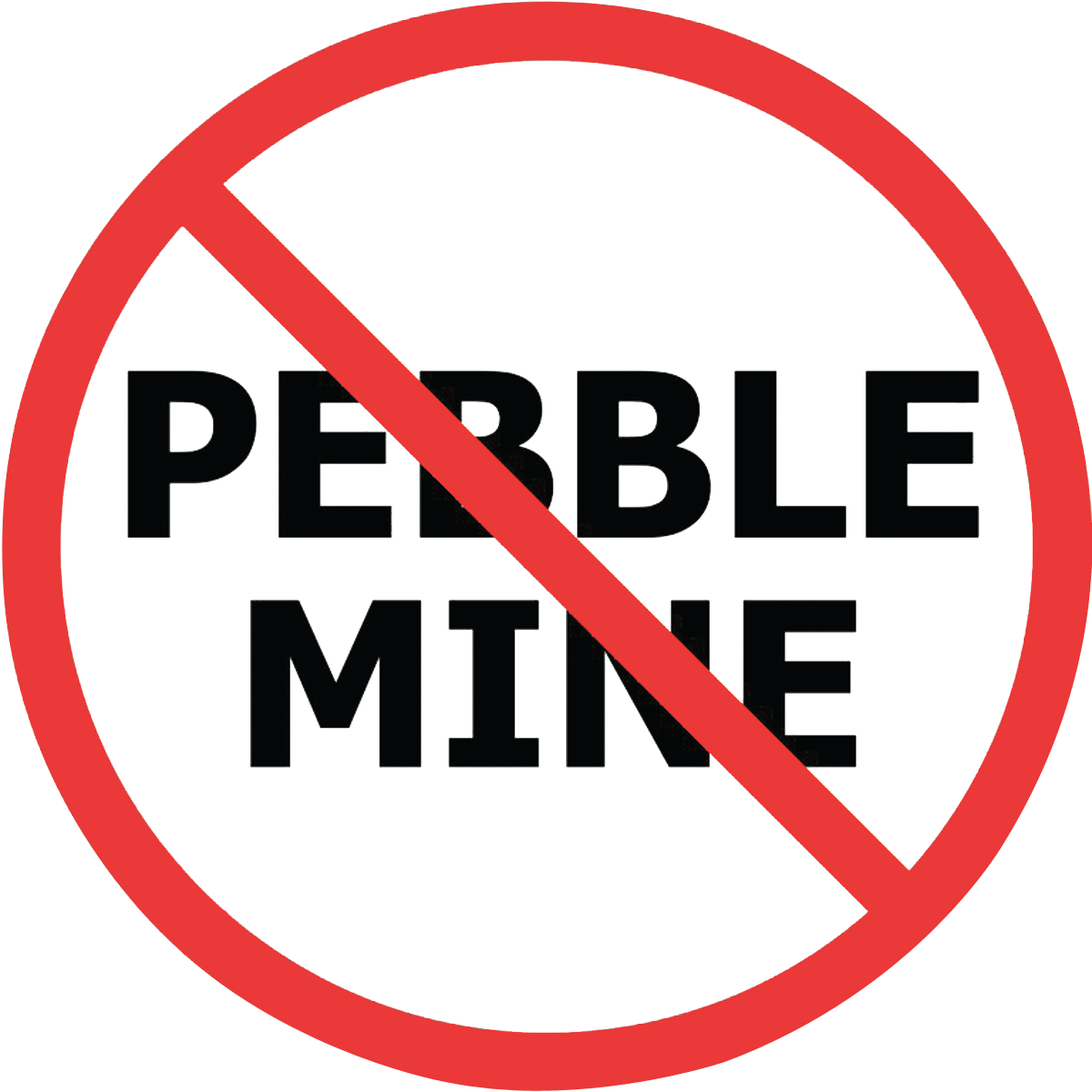Printed in the Fairbanks News-Miner
- Click here to read the original story
- Kvichak Aspelund
- Jul 2, 2018 Updated Jul 2, 2018
Community Perspective
The 2018 season that just kicked off is my fifth season as a sport fishing guide in Bristol Bay. As I grew up in King Salmon, the importance of returning sockeye salmon was apparent year-round and obvious from as early as I can remember.
Far after the long summer light has gone for the season, the community recounts the last season, eats its fish, tells the stories of particularly memorable clients, and guesses what the next season will bring. We discuss management issues, particularly useful flies and productive river bends, and we stay on top of the latest news with the proposed Pebble Mine.
I was about 12 when I first heard about Pebble Mine. When I was old enough, I looked into the details of Pebble’s plans to decide for myself. I learned that copper mining is especially harmful to wild salmon. I learned that the deposit at Pebble is very low-grade, meaning they need to mine massive areas to turn a profit. I learned that many of the jobs would be highly specialized contract work done by Lower 48 specialists. And finally, I learned that the mine would be located at the headwaters of the Nushagak and the Kvichak Rivers — essentially two of the vital arteries keeping the heart of Bristol Bay beating, season after season.
The thing about these first few facts I learned about Pebble is that there is little the company could do to address them. They’re just facts. The location, the deposit type and the minerals, together, spell bad news for Bristol Bay’s many fishermen and visitors, who, regardless of what you’re fishing for, all depend on wild salmon.
As I learned these unalterable facts, the company did nothing to earn our trust. Pebble went on the defensive and ruined any chances for gaining it. It attempted to bribe community members for support. It promised it would leave if it were not wanted, and then never backed down when asked. After over a million Americans told it the mine was unwanted in 2014, Pebble sued the agency we petitioned to protect our waterways, preventing the popular proposal that would help ensure the long-term health of our salmon from ever being implemented.
Their latest stunt is repackaging the same mine they’ve always intended to build as a smaller, safer version. Unfortunately, the minerals in the ground didn’t change based on their new PR strategy. It’s the same deposit, at the headwaters of the same two rivers. Though Pebble has a “new” plan, water still flows downhill. Though they request permits for 10 percent of the Pebble deposit today, their need to turn a profit to make money for foreign investors will require that they continue to mine every square inch of gold and copper from Bristol Bay until dozens of square miles of landscape are overturned and pillaged.
Bristol Bay is about fishing. Tourists fly from around the world to come fish on the stretch of the Naknek where I grew up and put up fish with my family, and they bring economic stimulus to our region along with them. Our commercial fishery sends our “red gold” around the world and feeds thousands of families, including my own, and provides thousands of jobs. Our fish are the core of the culture and way of life in Bristol Bay and have sustained our people and culture since time immemorial.
The Army Corps of Engineers just wrapped up the first public comment period in its rushed permit review, and Northern Dynasty is on the hunt for new investors after its sole financial partner fell through. What we’ve seen from the Corps of Engineers is nowhere near a fair process. I hope our state decision-makers will join Alaskans in calling for them to halt Pebble’s permit review process until further details are given so we can adequately review what’s at stake at a place as vital as the headwaters of Bristol Bay.
Yes, mining is important, but existing jobs in Bristol Bay can supply more than Pebble could, and they can do it for many years longer than Pebble would. There comes a time when the people look at the facts and say, “Not here.” Not in this place that depends on clean rivers for our jobs, culture and economy. Not in this place where our plans are based on the forecast and what’s biting where. In the region world-renown for salmon, to a type of mine known to destroy them, we say, “Not here.”
Kvichak Aspelund grew up in King Salmon, Alaska. In the summer, he guides at Bear Trail Lodge and in the winter, is a dean’s list student at UAA studying justice with a goal of becoming an Alaska State Trooper.
